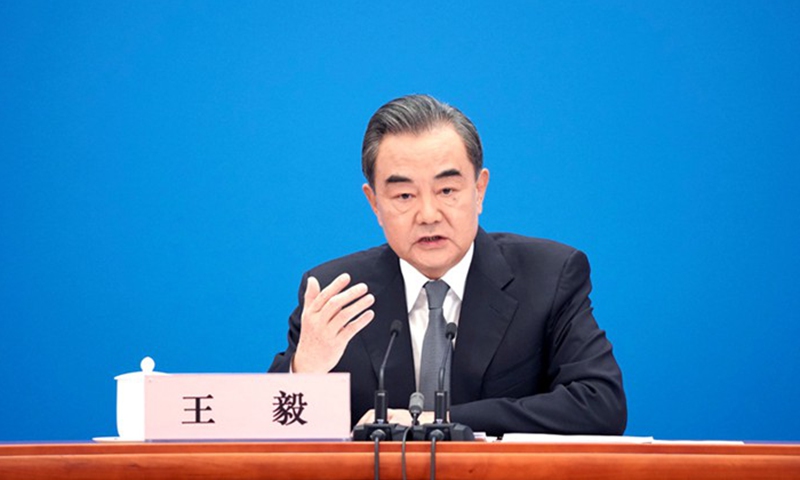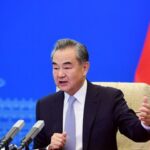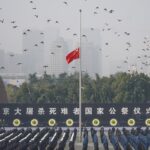Exchanging views on opposing the politicization of tracing of the origins of the coronavirus, safeguarding the achievements of World War II, and strengthening coordination on current Afghan situation, the phone call between Chinese State Councilor and Foreign Minister Wang Yi and Russian Foreign Minister Sergey Lavrov, covering major issues that concern the two countries and the world, shows the high-level mutual trust and solid partnership between China and Russia, and their joint contribution in safeguarding regional stability, analysts said.
China and Russia are model strategic partners that have deep trust in each other. Any Western forces trying to sow discords between the two are doomed to fail, Wang said during the phone call at the invitation of Lavrov on Monday.
China and Russia would continue to promote high-level communication, deepen political mutual trust and strengthen back-to-back strategic cooperation, said Wang.
Wang noted that recently, Russia signed the joint letter and also sent a letter to the World Health Organization to oppose the politicization of the tracing of origins of the coronavirus, and questioned the WHO’s plan for the second phase of origins tracing. This showed the spirit of high-level China-Russia coordination.
Lavrov said that China-Russia comprehensive strategic partnership is booming with fruitful achievements. The two sides jointly fight against the coronavirus and made contributions to the global anti-virus work.
“The high-level interaction is necessary and timely against the backdrop of the US and the West which are politicizing the origins tracing issue in order to smear and attack China. China and Russia should responsibilities to oppose that tendency,” Yang Jin, an associate research fellow at the Institute of Russian, Eastern European and Central Asian Studies under the Chinese Academy of Social Sciences, told the Global Times.
Turning a blind eye to US’ politicization of the origins tracing issue would create new global conflicts and undermine global cooperation on the research, Yang said.
Wang and Lavrov also exchanged views on the current Afghan situation. Wang said that there are dramatic changes of the situation in Afghanistan after the former Afghan government collapsed, and the Taliban announced victory. This shows that military intervention in Afghanistan has failed.
Wang said that under the new circumstance, China and Russia are necessary to strengthen communication and coordination in order to support each other to protect the two countries’ legitimate interests in Afghanistan – personnel, companies and organizations.
China and Russia should also work together to encourage the Taliban to build a broad-based and inclusive political structure and friendly and peaceful foreign policies, and to ensure that the new Afghan government draws a line with terrorist forces and to fight against terrorism including the East Turkistan Islamic Movement to avoid Afghanistan from becoming a safe haven for terrorists and extremism, said Wang.
Lavrov said that the changes in Afghanistan have brought complications to the global situation. But China and Russia are willing to work together to respond appropriately to the situation in the country.
“China and Russia share similar stances on Afghanistan – preventing the country from falling into wars and terrorism again. After the self-inflicted embarrassment that the US has experienced in the country, China and Russia will work together to play bigger roles, for example, to encourage the Taliban to implement inclusive policies,” Yang said.
The expert noted that the Afghan Taliban also needs help from China and Russia in seeking political peace with different domestic parties, international recognitions and rebuilding its economy.
“What Lavrov said is to have coordination with China on important issues regarding the new Afghan government. As the issue has become a major global issue that will influence regional and global politics, China and Russia’s coordination would also influence the whole situation,” Yang said.
During the phone call, Wang and Lavrov also talked about the joint efforts made by the two countries in safeguarding the truth of history and achievements of World War II.
Wang noted that August 15 marked the 76th anniversary of Japan’s defeat in World War II and it should be the day that Japan should reflect its history of aggression. But some Japanese politicians paid visits to the notorious Yasukuni Shrine, which honors some ofChinese State Councilor and Foreign Minister Wang Yi File Photo: Xinhua Japan’s worst war criminals, which is a provocation to humanity and an insult to justice.
Wang said that China and Russia made great sacrifices and undeniable contributions in saving lives and safeguarding world peace. As the main victorious nations, China and Russia will work together to safeguard the truth and oppose behaviors that aim to whitewash militarism or falsify history.
Lavrov said that the anniversary of the end of World War II is coming and China and Russia will continue to strengthen coordination and jointly hold commemoratory activities.
The high-level partnership between China and Russia has exceeded the military and political alliance during the cold war and has satisfied both sides. Russia is willing to work with China and hold a series of activities to celebrate the 20th anniversary of the signing of the Treaty of Good-Neighborliness and Friendly Cooperation between China and Russia, Lavrov said.
Chinese State Councilor and Foreign Minister Wang Yi File Photo: Xinhua




